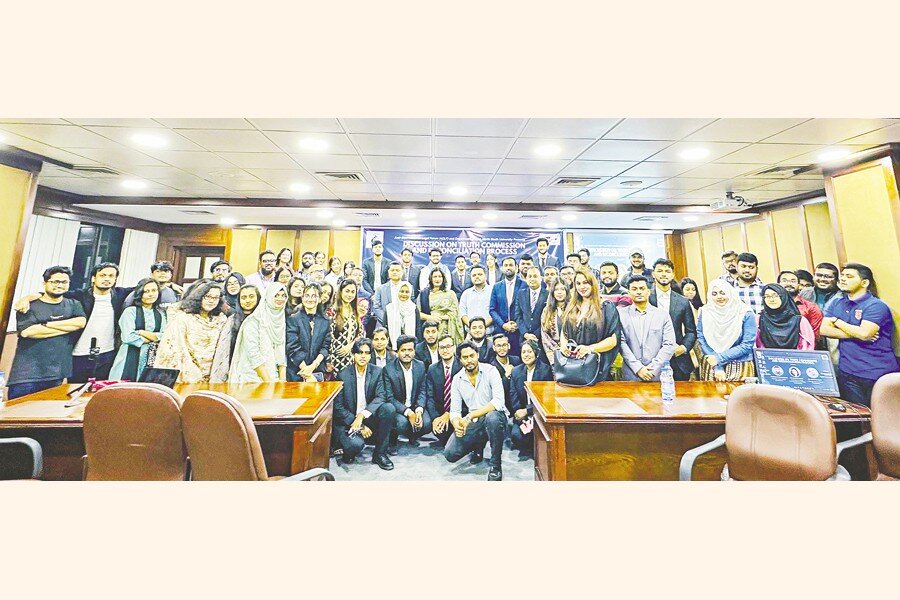
Published :
Updated :

In an effort to reckon with past injustices, the Anti-Discrimination Legal Forum (ADLF), in collaboration with North South University's Department of Law, hosted a thought-provoking discussion on February 04. The focus was the necessity of Truth Commission and the Reconciliation Process. With attendance of legal minds, human rights defenders, and active students, the session sparked a productive exchange of perspectives on the establishment of a Truth, Justice, and Reconciliation Commission (TJRC) as a means to address historical wounds and pave the way for societal healing.
The event opened with remarks from ADLF representatives and faculty members of North South University's Law Department, framing the conversation around truth-seeking mechanisms and the imperative of national reconciliation.
Dr Shamaruh Mirza, scientist, activist, and founder of the Diaspora Alliance for Democracy, put forth a compelling case for the TJRC. She underscored the persistent psychological scars left by years of human rights violations, arguing that any reconciliation effort must acknowledge the long shadow of past trauma.
Supreme Court advocate Barrister Jyotirmoy Barua drew upon his vast experience representing victims of human rights abuses. He spoke openly about the difficult path to justice and emphasised that true reconciliation cannot emerge without an inclusive and equitable framework that ensures a just society for everyone.
Dr Qazi Zahed Iqbal, another Supreme Court advocate, shared that while past offenders should not escape justice, enhancing inclusive politics is equally indispensable. Without a robust legal structure, he warned, justice could remain an abstract ideal rather than a tangible reality.
The discussion saw lively participation from students, legal practitioners, and civil society representatives. Topics ranged from institutional accountability to the mechanics of enforcement, with an emphasis on the indispensable role of grassroots activism in pushing for truth and justice. Finally, Md Lokman Hussain, senior lecturer at North South University's Department of Law, reinforced the urgency of sustained dialogue. The session was deftly moderated by Safiul Alam Shupto, chief coordinator of ADLF.
As Bangladesh continues to grapple with the ghosts of its past, conversations like these serve as stepping stones towards a more just and reconciled future-one where accountability and unity are not opposing forces, but necessary companions.


 For all latest news, follow The Financial Express Google News channel.
For all latest news, follow The Financial Express Google News channel.